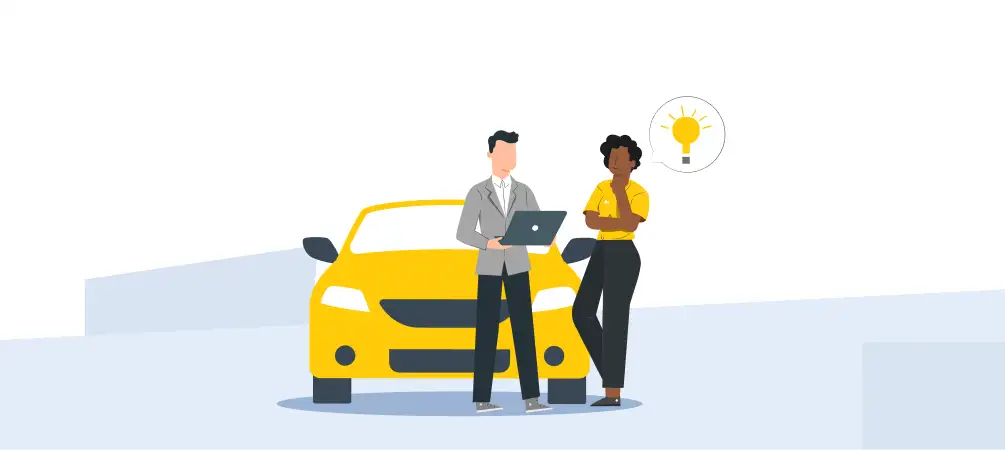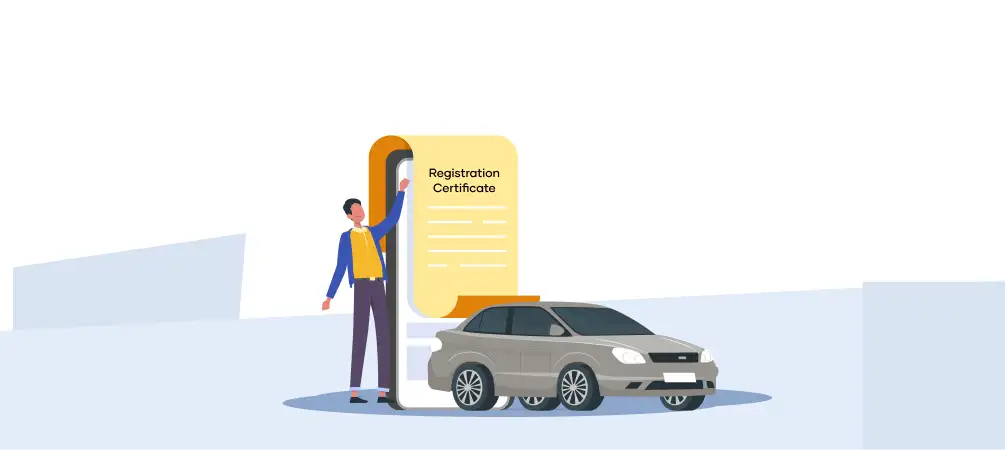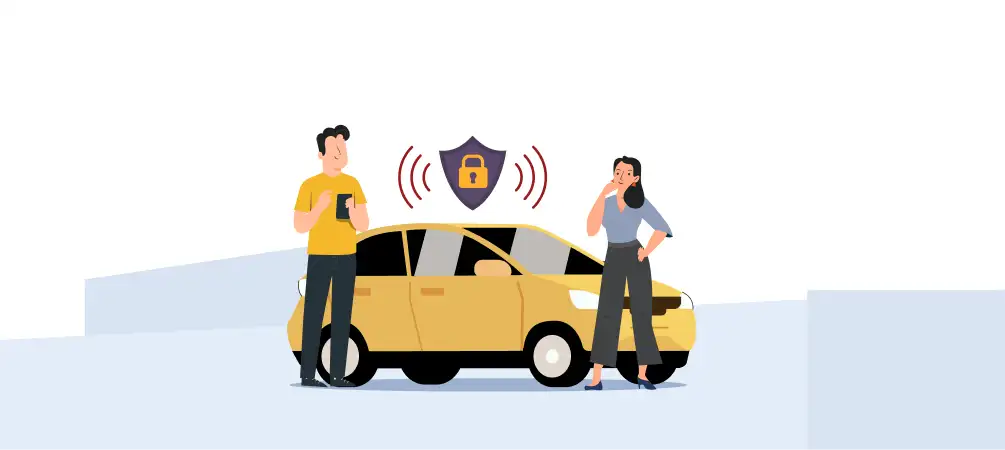Is It Possible to Sell a Car Without Valid Insurance?
Having a four-wheeler can make getting around easier, especially for people who want to avoid crowded public transportation during busy times. Even if it's very easy, some car owners wish to sell their automobile for a variety of reasons, including financial difficulties, relocating to a new place, or the desire to get a newer, larger car.
Some car owners may decide to reduce their vehicle-related expenses, such as insurance, since they no longer intend to use the vehicle in the long term. It makes them wonder whether selling a car without valid insurance is a good option. In this blog, we explore this possibility from multiple angles, enabling sellers to make an informed decision.

Table of Contents
What are the Reasons to Have a Valid Insurance Certificate When Selling a Car?
-
Legal Requirement
A valid insurance certificate is one of the documents required for a complete transfer of ownership. Hence, you cannot legally sell a car without valid insurance.
-
Buyer Confidence
A car with active insurance boosts buyers’ confidence because it signals that the vehicle is well-maintained and compliant with all relevant laws. It can lead to securing a higher resale value.
-
Financial Coverage During Test Drive and Interim Use
Car sales are rarely instant. Sellers should maintain their Car Insurance till complete ownership transfer because it covers them financially in case a potential buyer damages their vehicle during a test drive. It can also protect the seller against third-party damages if they are involved in a road accident before full ownership transfer or a successful sale.
-
Avoiding Penalties
Uninsured vehicles cannot be taken on the roads. Hence, hefty fines and penalties will be imposed if a seller is caught driving an uninsured car to hand over the keys to the buyer or taking it to a dealership.
What are the Legal Implications of Selling a Car Without Insurance?
Selling a car in India without insurance may seem like a good idea, but it has numerous legal consequences for both the buyer and the seller.
Legal Implications for the Seller
-
Liability for Accidents
If the buyer is involved in an automobile accident before the full transfer of ownership, the seller will be liable for any damages to other parties, even if they weren't at fault for the accident.
- Ownership Transfer Delays
Before the Regional Transport Office (RTO) can let you transfer ownership of a car, you must have valid insurance coverage on it. Not having active insurance might make the sale process take longer and be more difficult than it has to be.
- Potential Penalties
The seller will be held accountable for any traffic offences committed by the buyer, as the buyer doesn't yet possess the item.
Legal Implications for the Buyer
-
Financial Liability
Buyers will have to pay for car repairs and other expenses out of their own pocket. These expenses could have been otherwise covered by Car Insurance.
-
Fines and Penalties
Driving an uninsured car will attract more fines and penalties, no matter where you are driving.
-
Risk of License Suspension
Repeated violations, such as driving an uninsured car, may even lead to the suspension of the driver’s license.
How Do Dealers Handle Uninsured Cars?
Professional dealers have extensive experience working with individuals who want to sell cars without insurance in India. Ideally, they handle uninsured cars and related transactions in the following ways:
-
Supporting Immediate Insurance Purchase
They help buyers get vehicle insurance right after the purchase. Some even provide assistance with legal compliance.
-
Risk Management
Dealers are trained to identify and mitigate all risks involved for themselves and their buyers.
-
Streamlining Paperwork
Dealers are familiar with the RTO process for uninsured vehicles, so they assist involved parties in gathering all the required documents to facilitate a faster sale and ownership transfer.
-
Price Adjustments
All experienced dealers make necessary price adjustments as they’re well aware that uninsured cars must be priced lower to compensate for the extra hassle and risk to the buyer.
Documentation Required for Uninsured Vehicles
If you plan to sell your car, you must think beyond ‘can you sell an uninsured car?’ Ensure you collect all the necessary documents to facilitate a successful sale, allowing buyers to close the deal more quickly. Generally, buyers ask for the following documents for uninsured vehicles:
-
Registration Certificate (RC)
The buyer must have the original RC in their name to verify they own the vehicle and start the transfer process.
-
Sales Agreement
A written sales agreement that lists all the terms that both parties agree on and states that the vehicle is not insured, signed by the involved parties.
-
Form 29 and Form 30
These are RTO forms essential for facilitating the transfer of ownership. Both forms should be duly signed by both the buyer and seller.
-
Pollution Under Control (PUC) Certificate
A PUC certificate is essential because it confirms that the car meets environmental standards.
-
Acknowledgement of Insurance Status
Sellers should get a written confirmation from the buyer that they realise the car is not insured and agree to insure it before driving it.
-
ID Proof
For a seamless RTO verification, both the buyer and the seller must show valid ID and proof of address.
-
Indemnity Bond
It’s a must-have for sellers because it can protect them from any financial liability arising from road accidents, traffic violations, and other incidents that may occur after the sale.
What Should the Buyer Do When Purchasing an Uninsured Car?
-
Secure Insurance for the Car
People who buy a car should obtain the right insurance for it immediately. At the very least, you must have third-party insurance.
-
Verify All Documents
The buyer is in charge of making sure that every document is correct and duly signed.
-
Complete the Ownership Transfer
If the ownership transfer isn't yet complete, buyers should take all necessary steps, such as completing the correct documents and submitting them to the RTO, to ensure they own everything.
Conclusion
If you are considering selling a car without insurance, it is essential to be aware of the relevant legal requirements. Some people are willing to buy a car without insurance, but it's essential to note that the seller will still be liable for any financial damage that occurs to the automobile, even if the new owner causes it.
The best way to remove any potential risks or challenges is to ensure you have valid insurance, such as Shriram Car Insurance, during a car sale. Shriram General Insurance Car Insurance packages provide the protection for both the car and the policyholder against possible risks.
FAQs
Is it legal to sell an uninsured car in India?
While sales can take place, buyers should remember that driving an uninsured car is illegal.
Can I transfer my existing, active Car Insurance Policy to the buyer?
Yes, you can transfer it by contacting your insurer.
Will RTO allow ownership transfer without a valid insurance certificate?
No, RTO mandates a valid insurance certificate as a part of the transfer process.
Should I cancel my Car Insurance after selling my car?
Transferring it to the buyer is a better option than cancelling the Car Insurance.



 2575
2575


















